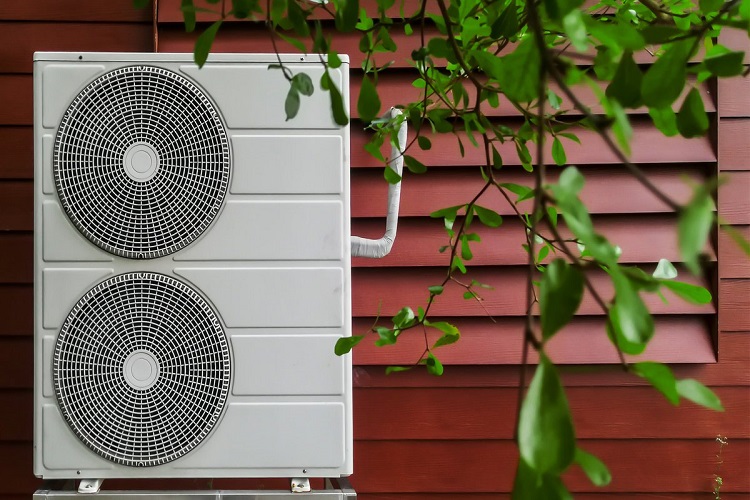

Industry experts share their views on whether heat pumps are the transformative solution that everyone is looking for
November 20, 2023 | Megha S Anthony | USA | Facilities Management

In the heart of New York Climate Week, a palpable sense of excitement filled the air as executives from leading real estate, banking, and investment firms unanimously declared their enthusiasm for the future of sustainability — heat pumps. These versatile heating and cooling systems are emerging as the linchpin in the nationwide initiative to transition buildings away from fossil fuels and substantially reduce carbon footprints.
However, despite a surge in incentives, the adoption rate has been gradual, prompting us to question whether heat pumps are the transformative solution many envision.
The Unveiling Promise
The recent buzz around heat pumps belies their longstanding concept. Originating from 19th-century air conditioning systems, they have been a staple in countries like Norway, heating over half of their buildings. Now, the US is catching up with heat pumps outselling gas furnaces for the first time last year.
According to Yannick Monschauer of the International Energy Agency, we are entering the era of the heat pump and these electric marvels will play a central role in mitigating heating's climate impact. The allure is multifaceted: cost savings, reduced energy consumption, and a departure from the regular fossil fuel systems.
Efficiency Breakthrough
Modern heat pumps are more than just talk; they are efficient powerhouses. Achieving 300-400% efficiency or even more in some cases, these systems outperform traditional space heaters. The key lies in their utilization of electricity to gather and move heat, making them significantly more energy-efficient. This not only benefits the environment but can also translate into substantial financial gains, particularly for property owners embracing renewable energy sources. As Liam McCabe, a senior researcher at SageEnergy, passionately notes, “It’s a way to electrify heating, which is largely not electrified across the country.”
Incentives Paving the Way
Though upfront costs may deter some, initiatives like the Inflation Reduction Act (IRA) signed by President Biden are game-changers. The Act provides a plethora of incentives for both residential and commercial heat pump installations. According to McCabe, “If the building is a new multifamily property, especially in California, the way you can stack incentives is remarkable.”
Heat Pumps: A Developer's Dream
For larger building developers, the tide is turning. While retrofitting poses challenges, new constructions are increasingly embracing heat pumps. With a marginal cost difference and a surge in green construction, industry giants like Hudson Square Properties and Hines are incorporating heat pumps into their projects, ensuring sustainable outcomes. As Alexander Shermansong, Director of Digital Equity Partners at Culture Cascade, passionately emphasizes, “From a builder’s perspective, there is very little incentive not to do it.”
The Technological Evolution
The growth in heat pump popularity is paralleled by technological advancements. In 2020, 4.8 million heat pumps were installed across the US, with a consortium committing to installing 20 million residential electric heat pumps by 2030. However, impediments to widespread adoption persist.
Challenges on the Horizon
Sparse data on heat pump performance, supply constraints, and a shortage of skilled installers are significant hurdles. The industry is now grappling with the need for more comprehensive data collection, regional disparities in equipment availability, and the urgency to train more installers. According to SageEnergy’s McCabe, “There is skepticism among contractors. A lot of contractors haven’t gotten the memo.”
The Cold Reality and Cost Concerns
One persistent concern is the performance of heat pumps in the coldest climates. While advancements have dispelled many doubts, the efficiency drop in extreme cold remains an issue. Moreover, the upfront cost of heat pumps is a barrier even with incentives. The industry is navigating skepticism among contractors and property owners, creating a learning curve for adoption. As McCabe points out, “You can get a basic furnace and A/C generally for less than a single failsafe climate heat pump.”
Government Backing and Industry's Future
Government initiatives and the push for green technologies are propelling the heat pump narrative. Residential and commercial property owners stand to gain, but the industry must address skepticism, performance concerns, and cost barriers. In the face of the current political and meteorological climate, the heat pump revolution is no longer a luxury; it's a necessity the industry can't afford to ignore.
Fact File: The Heat Pump Revolution in Detail
The heat pump revolution is not just about technology; it's about reshaping our approach to sustainability and building a greener future for generations to come. As we navigate the challenges and opportunities, the human spirit of innovation and collaboration will be the driving force behind this transformative journey.